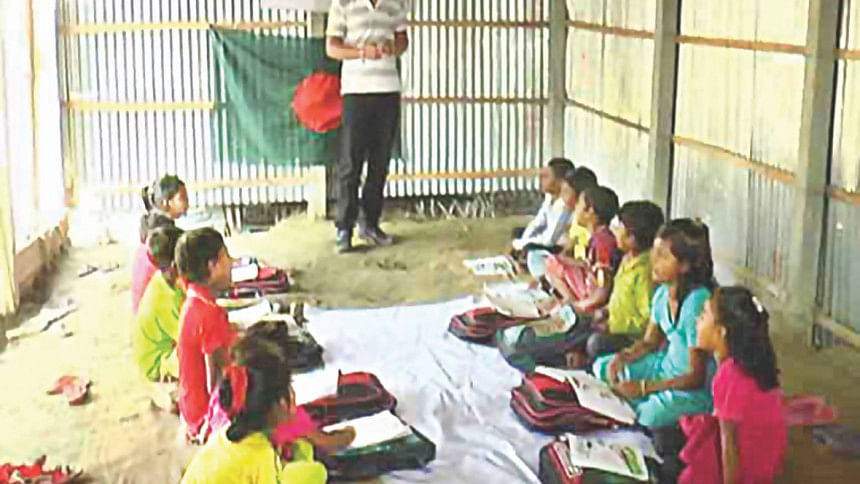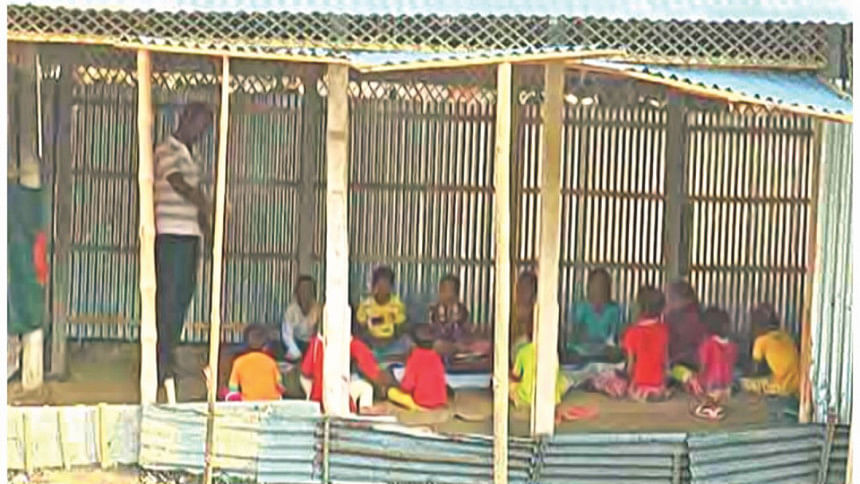Harijans take it upon themselves

Parents in Gaibandha's Harijan community often worried about their children's schooling. Due to the failure of mainstream primary schools to provide a congenial study environment, one that was free of discrimination and prejudice, Harijan children often found the experience of going to school harrowing. Many dropped out. But the Harijan, who commonly work as sweepers in Gaibandha, value education. They decided to establish their own school, where their children could feel welcome and safe.
Located beside Bonarapara railway station in Shaghata upazila and accommodated in a formerly abandoned tin shed, 'Our School' was pioneered in 2014 by Rajesh Basfore who is committed to providing the opportunity for future generations of his community to excel.
“I studied up to class nine,” Rajesh explains, “and through the years of my education I suffered a lot. I faced social barriers, being ignored and disregarded by classmates; and also because of my family's poverty I could not continue my education.”
In local primary schools, Harijan children often find it difficult to find friends among classmates. They are sometimes excluded from games and cultural events. As a result, many feel isolated and lonely in the crowded school grounds.
“The situation leads to an inferiority complex among Harijan children,” says Megha Basfore, a resident of the Bonarapara railway colony. “Our children often discontinue their study in the first few years of primary school. From bitter experience we felt that we needed a separate school where they could learn without any hesitation.”
The school currently has 27 students enrolled to class five and Rajesh is the sole teacher. In the classroom, they sit on jute sacks in place of chairs. Nonetheless, the students feel at ease.

“Nobody hates us here,” says Riya Basfore, a student of the school. “We feel comfortable to learn our lessons and play games.”
“In primary school the other children didn't like to make friends with us,” says another student, Anil Basfore. “We were often ignored.”
“We are extending all the assistance we can to develop the school,” says community resident Ratan Basfore. “I wish the authorities concerned would help us.”
In the meantime, the Harijan community is doing everything it can to realise a dream that many parents can take for granted: that their children will one day be in prime position to stand on their own two feet, heads held high. “With proper education our children can establish themselves well in this society and overcome all social barriers,” says Rajesh.

 For all latest news, follow The Daily Star's Google News channel.
For all latest news, follow The Daily Star's Google News channel. 



Comments